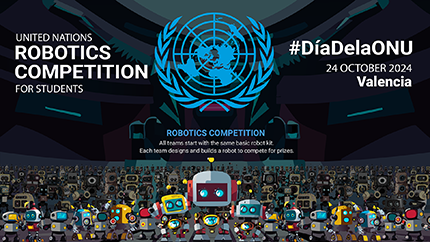SDG 4: Quality Education Provides a unique educational opportunity for students to learn and apply STEM concepts, promoting quality education and skills development.
SDG 5: Gender Equality Promotes gender equality by requiring teams to maintain gender balance within their group, fostering inclusivity in STEM fields.
SDG 7: Affordable and Clean Energy Encourages innovation in robotics and technology, which can lead to advancements in energy-efficient solutions for various applications.
SDG 8: Decent Work and Economic Growth Promotes the development of skills relevant to the technology and robotics industry, contributing to economic growth and employment opportunities.
SDG 9: Industry, Innovation, and Infrastructure Promotes innovation and the development of technology infrastructure through robotics challenges, fostering skills and knowledge in these areas.
SDG 10: Reduced Inequality It fosters diversity in STEM fields, contributing to gender equality.
SDG 11: Sustainable Cities and Communities By emphasizing recycling and sustainable practices in robot construction, the competition indirectly contributes to building sustainable urban environments.
SDG 12: Responsible Consumption and Production Encourages responsible consumption by utilizing recycled materials in robot construction, reducing the environmental footprint of the competition.
SDG 13: Climate Action Encourages participants to reuse recycled materials, promoting sustainability and reducing waste.
SDG 16: Peace, Justice, and Strong Institutions Fosters teamwork, critical thinking, and problem-solving skills in participants, skills that can contribute to building strong, just, and peaceful societies.
SDG 17: Partnership for the Goals Emphasizes collaboration and partnership among schools, students, and organizations to create a successful competition, aligning with the spirit of SDG 17.

